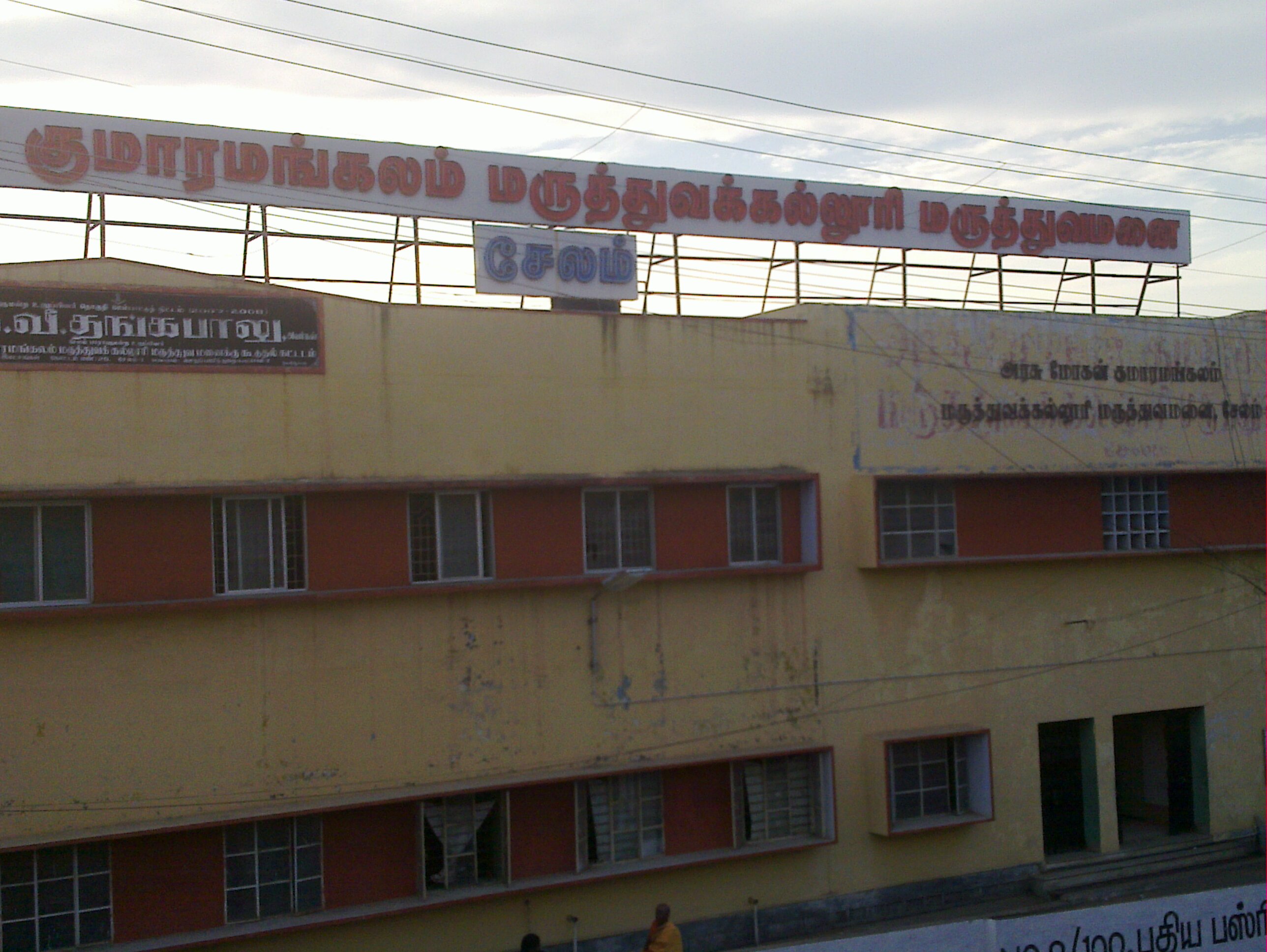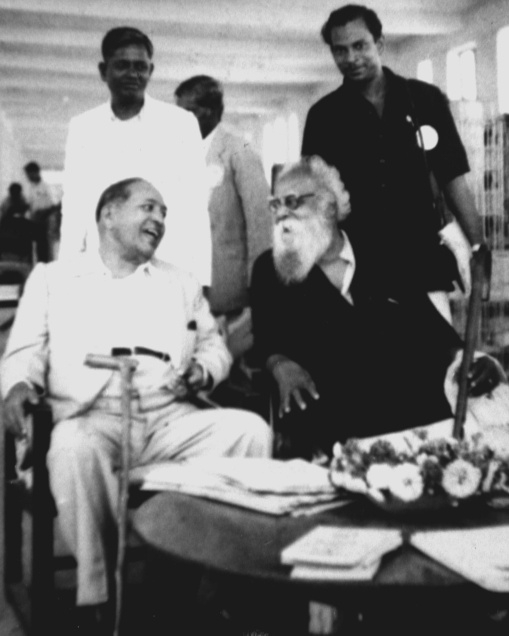|
Radhabai Subbarayan
Kailash Radhabai Subbarayan, ''nee'' Kudmul (22 April 1891 - 1960) was an Indian politician, women's rights activist and social reformer. She was the wife of Indian politician P. Subbarayan and mother of Mohan Kumaramangalam, P. P. Kumaramangalam and Parvathi Krishnan. Early life and education Radhabai Kudmul was born to Rao Sahib Kudmul Ranga Rao of Mangalore. She belonged to the Chitrapur Saraswat Brahmin community. She had her schooling in Mangalore and graduated from Presidency College, Madras. Widowed at an early age, in 1912, Radhabai married P. Subbarayan, ''zamindar'' of Kumaramangalam. The couple had three sons and one daughter. She did her post graduation from Somerville College, Oxford. Public life Radhabai was an elected member of the senate of the Madras University. She also served as a member of the All India Women's Conference. In the Round Table Conference of 1930, she and Jahanara Shahnawaz Begum Jahanara Shahnawaz (7 April 1896 – 27 Novembe ... [...More Info...] [...Related Items...] OR: [Wikipedia] [Google] [Baidu] |
Mohan Kumaramangalam
Surendra Mohan Kumaramangalam ( ta, சுரேந்திர மோகன் குமாரமங்கலம்) (1 November 1916 — 30 May 1973) was an Indian politician and communist theorist who was a member of the Communist Party of India, and later, the Indian National Congress.He also served as Advocate-General for Madras State from 1966 to 1967. Kumaramangalam was killed in the crash of Indian Airlines Flight 440 on May 31 1973 at the age of 56. Early life and education Mohan Kumaramangalam was born in London to P. Subbarayan, then ''zamindar'' of Kumaramangalam in Thiruchengode Taluk, Namakkal district and later, Chief Minister of Madras Presidency and his wife, Radhabai Subbarayan on 1 November 1916. He was their third and youngest son, Paramasiva Prabhakar Kumaramangalam and Gopal Kumaramangalam being elder to him. Kumaramangalam was educated at Eton and King's College, Cambridge, serving as President of the Cambridge Union Society in 1938. During his peri ... [...More Info...] [...Related Items...] OR: [Wikipedia] [Google] [Baidu] |
Alumni Of Somerville College, Oxford
Alumni (singular: alumnus (masculine) or alumna (feminine)) are former students of a school, college, or university who have either attended or graduated in some fashion from the institution. The feminine plural alumnae is sometimes used for groups of women. The word is Latin and means "one who is being (or has been) nourished". The term is not synonymous with "graduate"; one can be an alumnus without graduating ( Burt Reynolds, alumnus but not graduate of Florida State, is an example). The term is sometimes used to refer to a former employee or member of an organization, contributor, or inmate. Etymology The Latin noun ''alumnus'' means "foster son" or "pupil". It is derived from PIE ''*h₂el-'' (grow, nourish), and it is a variant of the Latin verb ''alere'' "to nourish".Merriam-Webster: alumnus .. Separate, but from th ... [...More Info...] [...Related Items...] OR: [Wikipedia] [Google] [Baidu] |
19th-century Indian People
The 19th (nineteenth) century began on 1 January 1801 ( MDCCCI), and ended on 31 December 1900 ( MCM). The 19th century was the ninth century of the 2nd millennium. The 19th century was characterized by vast social upheaval. Slavery was abolished in much of Europe and the Americas. The First Industrial Revolution, though it began in the late 18th century, expanding beyond its British homeland for the first time during this century, particularly remaking the economies and societies of the Low Countries, the Rhineland, Northern Italy, and the Northeastern United States. A few decades later, the Second Industrial Revolution led to ever more massive urbanization and much higher levels of productivity, profit, and prosperity, a pattern that continued into the 20th century. The Gunpowder empires, Islamic gunpowder empires fell into decline and European imperialism brought much of South Asia, Southeast Asia, and almost all of Africa under Colonialism, colonial rule. It was also mar ... [...More Info...] [...Related Items...] OR: [Wikipedia] [Google] [Baidu] |
19th-century Indian Women
The 19th (nineteenth) century began on 1 January 1801 ( MDCCCI), and ended on 31 December 1900 ( MCM). The 19th century was the ninth century of the 2nd millennium. The 19th century was characterized by vast social upheaval. Slavery was abolished in much of Europe and the Americas. The First Industrial Revolution, though it began in the late 18th century, expanding beyond its British homeland for the first time during this century, particularly remaking the economies and societies of the Low Countries, the Rhineland, Northern Italy, and the Northeastern United States. A few decades later, the Second Industrial Revolution led to ever more massive urbanization and much higher levels of productivity, profit, and prosperity, a pattern that continued into the 20th century. The Gunpowder empires, Islamic gunpowder empires fell into decline and European imperialism brought much of South Asia, Southeast Asia, and almost all of Africa under Colonialism, colonial rule. It was also mark ... [...More Info...] [...Related Items...] OR: [Wikipedia] [Google] [Baidu] |
Indian Women Activists
Indian or Indians may refer to: Peoples South Asia * Indian people, people of Indian nationality, or people who have an Indian ancestor ** Non-resident Indian, a citizen of India who has temporarily emigrated to another country * South Asian ethnic groups, referring to people of the Indian subcontinent, as well as the greater South Asia region prior to the 1947 partition of India * Anglo-Indians, people with mixed Indian and British ancestry, or people of British descent born or living in the Indian subcontinent * East Indians, a Christian community in India Europe * British Indians, British people of Indian origin The Americas * Indo-Canadians, Canadian people of Indian origin * Indian Americans, American people of Indian origin * Indigenous peoples of the Americas, the pre-Columbian inhabitants of the Americas and their descendants ** Plains Indians, the common name for the Native Americans who lived on the Great Plains of North America ** Native Americans in the ... [...More Info...] [...Related Items...] OR: [Wikipedia] [Google] [Baidu] |
Indian Women's Rights Activists
Indian or Indians may refer to: Peoples South Asia * Indian people, people of Indian nationality, or people who have an Indian ancestor ** Non-resident Indian, a citizen of India who has temporarily emigrated to another country * South Asian ethnic groups, referring to people of the Indian subcontinent, as well as the greater South Asia region prior to the 1947 partition of India * Anglo-Indians, people with mixed Indian and British ancestry, or people of British descent born or living in the Indian subcontinent * East Indians, a Christian community in India Europe * British Indians, British people of Indian origin The Americas * Indo-Canadians, Canadian people of Indian origin * Indian Americans, American people of Indian origin * Indigenous peoples of the Americas, the pre-Columbian inhabitants of the Americas and their descendants ** Plains Indians, the common name for the Native Americans who lived on the Great Plains of North America ** Native Americans in the Un ... [...More Info...] [...Related Items...] OR: [Wikipedia] [Google] [Baidu] |
Women In Karnataka Politics
A woman is an adult female human. Prior to adulthood, a female human is referred to as a girl (a female child or adolescent). The plural ''women'' is sometimes used in certain phrases such as " women's rights" to denote female humans regardless of age. Typically, women inherit a pair of X chromosomes, one from each parent, and are capable of pregnancy and giving birth from puberty until menopause. More generally, sex differentiation of the female fetus is governed by the lack of a present, or functioning, SRY-gene on either one of the respective sex chromosomes. Female anatomy is distinguished from male anatomy by the female reproductive system, which includes the ovaries, fallopian tubes, uterus, vagina, and vulva. A fully developed woman generally has a wider pelvis, broader hips, and larger breasts than an adult man. Women have significantly less facial and other body hair, have a higher body fat composition, and are on average shorter and less muscular th ... [...More Info...] [...Related Items...] OR: [Wikipedia] [Google] [Baidu] |
University Of Madras Faculty
A university () is an institution of higher (or tertiary) education and research which awards academic degrees in several academic disciplines. ''University'' is derived from the Latin phrase ''universitas magistrorum et scholarium'', which roughly means "community of teachers and scholars". Universities typically offer both undergraduate and postgraduate programs. The first universities in Europe were established by Catholic Church monks. The University of Bologna (), Italy, which was founded in 1088, is the first university in the sense of: *being a high degree-awarding institute. *using the word ''universitas'' (which was coined at its foundation). *having independence from the ecclesiastic schools and issuing secular as well as non-secular degrees (with teaching conducted by both clergy and non-clergy): grammar, rhetoric, logic, theology, canon law, notarial law.Hunt Janin: "The university in medieval life, 1179–1499", McFarland, 2008, , p. 55f.de Ridder-Symoens, Hilde' ... [...More Info...] [...Related Items...] OR: [Wikipedia] [Google] [Baidu] |
Kumaramangalam Family
Kumaramangalam is a village in Namakkal district in Tamil Nadu state in India. Location Map. Kumaramangalam is an ancient village near , located on a busy state highway between Erode and Namakkal. It houses many engineering, Arts and nursing colleges. In the heart of the city there is a centuries-old Paandeeswaran temple with a huge stone made pond. Kumaramangalam is a traditional Tamil village wher ... [...More Info...] [...Related Items...] OR: [Wikipedia] [Google] [Baidu] |
Indian Social Reformers
Notable social reformers in India included *Subramanya Bharathiyaar *Swami Vivekananda * Ishwarchandra Vidyasagar *Debendranath Tagore *Rabindranath Tagore *Mahatma Gandhi *Dwarkanath Ganguly *Gopal Ganesh Agarkar *Baba Amte *Javaid Rahi *Pandurang Shastri Athavale *Basavanna *Vinoba Bhave *Gopal Hari Deshmukh *Virchand Gandhi *Narayana Guru *Kazi Nazrul Islam *Acharya Balshastri Jambhekar *Vinayak Damodar Savarkar *Dhondo Keshav Karve *T. K. Madhavan *Ramakrishna Paramhansa *Jyotiba Phule *Savitribai Phule *Pandita Ramabai *Periyar E. V. Ramasamy *Kuriakose Elias Chavara *Mahadev Govind Ranade *Kirity Roy *Raja Ram Mohan Roy *Begum Rokeya *BR Ambedkar *Dayananda Saraswati *Subhash Chandra Bose * Anurag Chauhan *Sahajanand Saraswati *Prabhat Ranjan Sarkar *Keshub Chandra Sen *Shahu of Kolhapur *Shishunala Sharif *Vitthal Ramji Shinde *Ramalinga Swamigal *Kandukuri Veeresalingam *Ishwar Chandra Vidyasagar *Prabodhankar Thackeray Keshav Sitaram Thackeray (17 September 1885 ... [...More Info...] [...Related Items...] OR: [Wikipedia] [Google] [Baidu] |
Politicians From Mangalore
A politician is a person active in party politics, or a person holding or seeking an elected office in government. Politicians propose, support, reject and create laws that govern the land and by an extension of its people. Broadly speaking, a politician can be anyone who seeks to achieve political power in a government. Identity Politicians are people who are politically active, especially in party politics. Political positions range from local governments to state governments to federal governments to international governments. All ''government leaders'' are considered politicians. Media and rhetoric Politicians are known for their rhetoric, as in speeches or campaign advertisements. They are especially known for using common themes that allow them to develop their political positions in terms familiar to the voters. Politicians of necessity become expert users of the media. Politicians in the 19th century made heavy use of newspapers, magazines, and pamphlets, as well ... [...More Info...] [...Related Items...] OR: [Wikipedia] [Google] [Baidu] |




.jpg)
